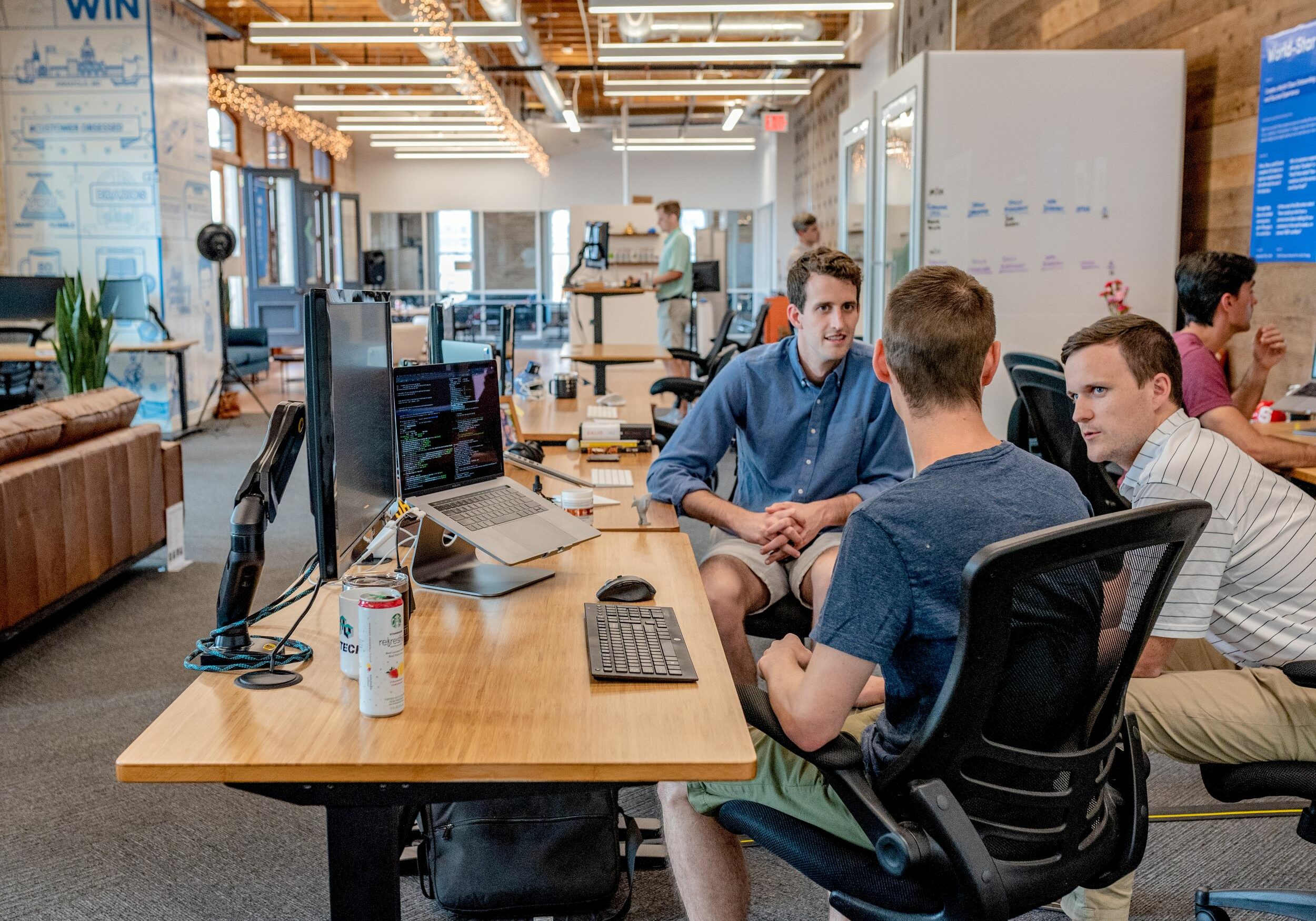Interrupting Workplace Distractions

On any typical workday, we are faced with hundreds of choices about how to spend our time. Interrupting workplace distractions come in waves—regular, ever-present, taking on forms like coworkers, smartphones, and unnecessary meetings. We may physically be at work for eight hours, but how many of these hours are productive? Interrupting workplace distractions is becoming more and more important these days.
Let’s look at some statistics:
- “Office workers are interrupted—or self-interrupt—roughly every three minutes, academic studies have found, with numerous distractions coming in both digital and human forms” (Rachel Silverman, wsj.com).
- According to a 2018 Udemy Workplace Distraction Report, nearly 3 out of 4 workers (70%) admit they feel distracted when they’re on the job. The problem is biggest for Millennials and Gen Zers, with 74 percent reporting feeling distracted.
- “More than a third of millennials and Gen Z (36%) say they spend two hours or more checking their smartphones during the workday (research.udemy.com).”
Be Aware of Common Distractions
While a collaborative, open-office environment can be a plus for some, this in and of itself can be a source of major distraction. Noise carries across the room, disrupting concentration. The temptation to talk to a co-worker is easy and ever-present. Cubicles can help but are also not soundproof.
Chatty coworkers are another distraction, and it can be tough to set clear boundaries. If using a platform like Google Hangouts or text among coworkers, the “dings” from these alerts may be omnipresent. Even meetings themselves (if scheduled too often) can interrupt what might otherwise be a solid chunk of productive time.
Of all distractors, the largest one fits in our pockets. Smartphones. Workers regularly text, check social media, shop online, and check email far too often. Many feel the need to have a smartphone no further than an arms-reach away, and some office atmospheres encourage work-related responsiveness via phone.
Distractions Cause Stress
Distractions are a bigger problem than most companies choose to admit. Lacy Roberson, a director of learning and organizational development at eBay Inc., says “It is an epidemic. At most companies, it’s a struggle “to get work done on a daily basis, with all of these things coming at you (wsj.com).”
People who want to reach a higher-level of thinking become very frustrated by distractions. They feel that they can never get on top of their work. From the 2018 Udemy survey: “One of the most shocking findings that we uncovered was that 34% of employees like their jobs less when they find themselves in a distracting workplace and 66% of workers have never discussed solutions to address workplace distraction with their managers.”
Training Your Brain
Everyone loves to feel productive and successful, so how can we develop better focus? Time Magazine reports: “Distractions are powerful drains on the brain’s ability to focus, and one of the best ways to get more from your mind is to give yourself the gift of uninterrupted stretches of time (Markham Heid).” Practically speaking, this may mean seeking out a quiet corner of the office (or asking for a quiet room to be available), scheduling “uninterrupted work time” on your Google Calendar, investing in noise-canceling headphones to wear in the office, or using smartphone settings to set limits.
Be aware of multi-tasking as it can be a distraction itself. Multi-tasking actually wastes time. Earl Miller, professor or neuroscience at MIT, says “People think that they can multitask and check things without losing their focus, but we have lots of studies showing that task-switching leads to mistakes and back-tracking, and that it wastes a lot of time.” Miller agrees that the best way to train your brain is through “bouts of prolonged, uninterrupted concentration.”
Strong personalities. Political and religious differences. Age gaps. Inexperienced managers. Jealousy. Unfair workloads.
Conflict is inevitable in any group environment. Whether it occurs between associates or involves managers, it costs businesses in the forms of time, money, low morale, and turnover.
Although impossible to avoid completely, a few simple strategies can help everyone get ahead of work conflict.
If you find yourself frustrated by distractions and are unable to work at your highest level, it may be time to truly evaluate your workplace environment. Artemis Consultants helps job seekers take inventory of what they need to be successful.
Like this article? Please let us know by commenting or hitting like or share.




